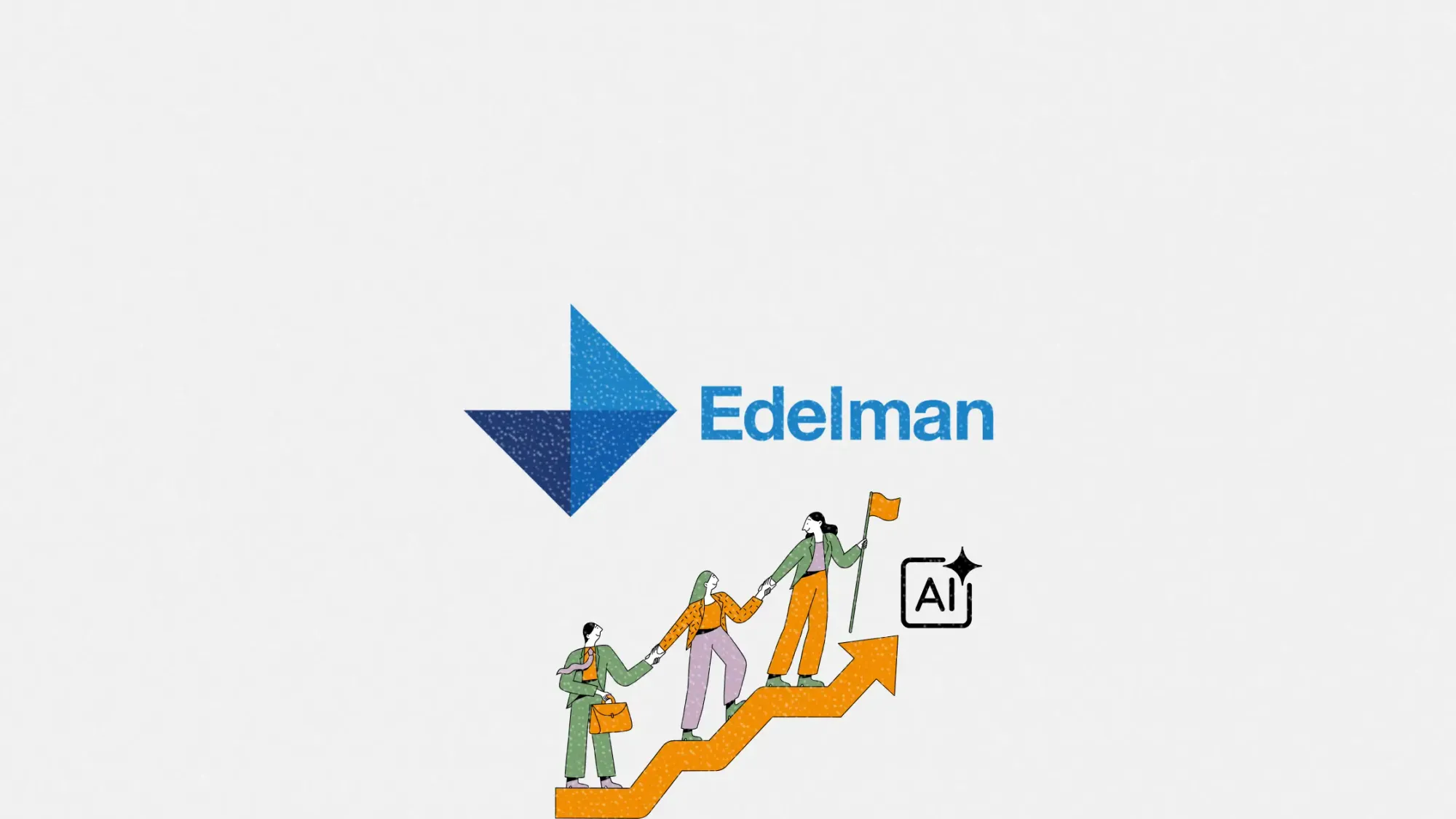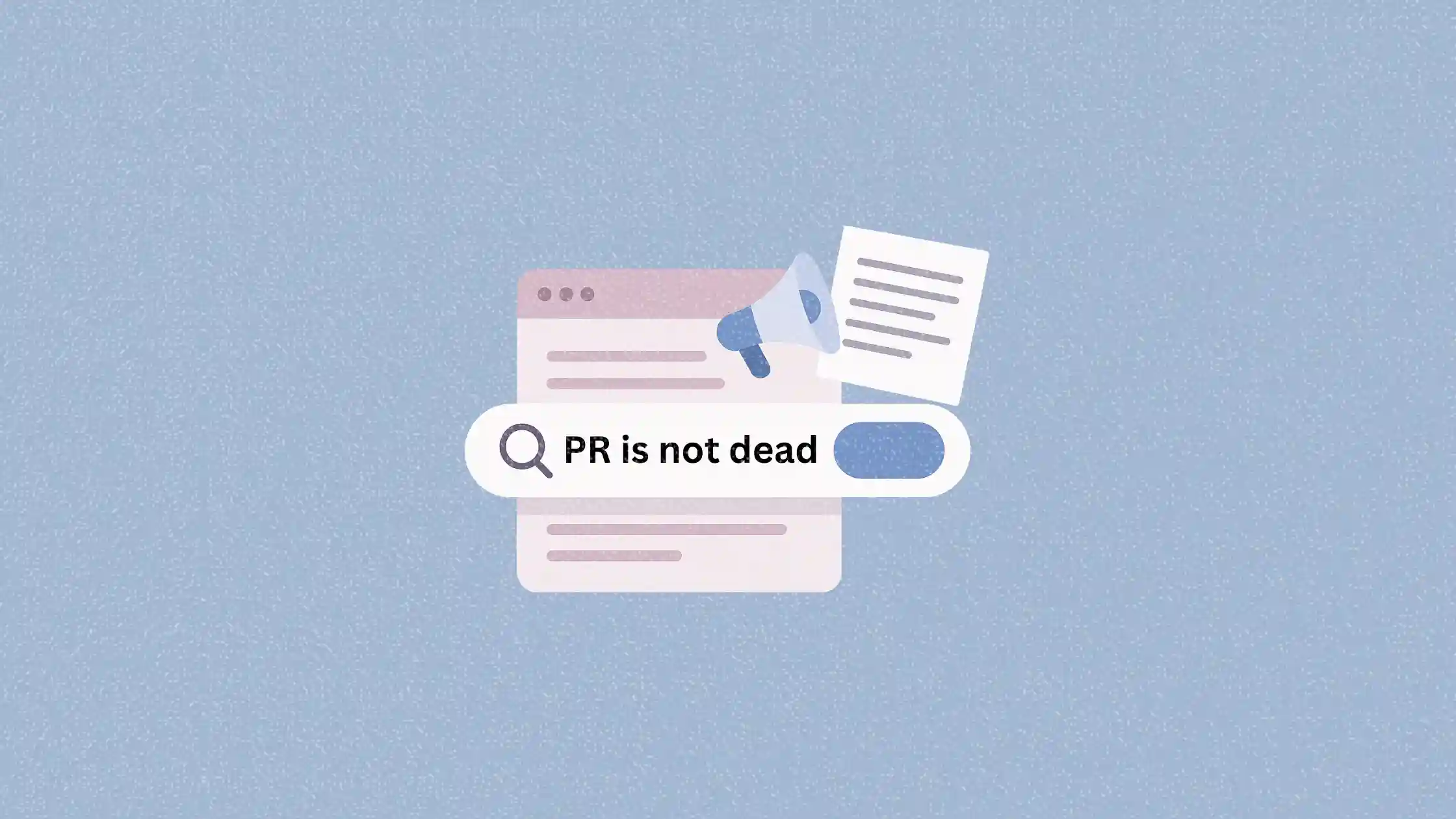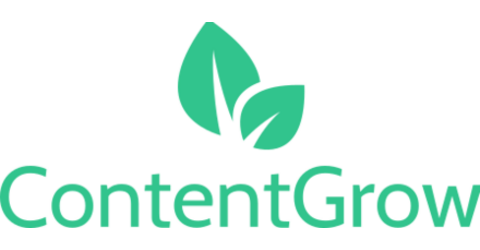Edelman repositions for AI era with new leadership and tech platform
Edelman unveils AI strategy and appoints new execs to capture more marketing budgets

Edelman is reshuffling its top leadership and doubling down on AI as it seeks to play a larger role in marketing beyond traditional PR.
The company’s latest moves aim to realign its structure, tech stack, and talent toward growth opportunities driven by generative AI and the shifting media landscape.
This article explores Edelman’s leadership changes, its new AI platform, and how the firm is positioning itself to win over CMOs looking for earned media solutions with measurable impact.
Short on time?
Here is a table of content for quick access:
- What’s new at Edelman?
- Inside ECOS: Edelman’s AI platform for PR and beyond
- What marketers should know

What's new at Edelman?
Edelman has announced a significant leadership shakeup alongside the launch of its AI infrastructure, the Edelman Central Operating System (ECOS). These changes are designed to support the agency’s strategic goal of moving from a geography-led model to a client-centric structure while scaling its capabilities in AI and transformation.
Here’s a breakdown of the key changes:
- Mainardo de Nardis, former OMD Worldwide CEO and current Edelman board member, has been appointed as Global President and Chief Operating Officer, succeeding longtime exec Matthew Harrington, who becomes Executive Chair.
- Brian Buchwald, previously Global Chair of Product and AI, has been promoted to President of Global Transformation and Performance.
- The moves follow high-profile creative hires, including Kate Stanners as Chief Creative Officer, International, and Eduardo Tavares as Global Executive Creative Director of Health.
Chief Executive Richard Edelman said the leadership mix will strengthen operations, deepen client impact, and accelerate transformation efforts.
Inside ECOS: Edelman's AI platform for PR and beyond
Alongside the leadership news, Edelman quietly introduced ECOS, its new AI-powered operating system designed to embed generative AI across internal workflows and client delivery. According to Buchwald, ECOS acts as the firm's “collaboration layer” that connects internal AI models with external tools from Microsoft and OpenAI, while integrating into enterprise platforms like Workday.
Key features include:
- AI agents (or “operational copilots”) that generate campaigns, manage workflows, and coordinate deliverables
- Currently being used by select internal teams, with client rollout planned over the next year
- Integrated brand trust model and early trend detection, powered by proprietary tools like Archie
Archie, Edelman’s in-house large language model, focuses on brand trust analytics. Together with ECOS, it enables predictive cultural analysis, earned media attribution, and campaign ROI modeling.
What marketers should know
Edelman’s strategy goes beyond optics. It is about transforming how earned media competes in a performance-driven environment. Here’s what matters for brand leaders and marketing pros:
1. AI is now core to earned media attribution
With ECOS and Archie, Edelman aims to deliver business value analytics traditionally reserved for paid media. Buchwald says the tools can spot cultural moments before they peak, helping clients act before competitors do.
Why it matters: PR has long been the hardest discipline to quantify. If ECOS can prove ROI through trend attribution and business lift, earned media could earn a bigger slice of CMO budgets.

2. From geography-led to client-led
Under de Nardis, Edelman will shift to a client-first model. His operations background and deep CMO relationships are expected to strengthen global execution and consistency.
Why it matters: Many large brands want seamless global service. This model removes regional friction and refocuses on key account delivery.
3. Positioning PR as performance marketing
With roles like President of Global Transformation and Performance, Edelman is framing PR as a measurable discipline. AI is embedded not just for efficiency, but for strategic output.
Why it matters: As AI transforms search and content discovery, earned media becomes more critical. Edelman is making the case that now is the time to invest in it.

Edelman’s moves signal more than a leadership refresh. They reflect a larger bet on AI, attribution, and transformation in an era where influence must be proven, not assumed.
Marketers should take note. As media ecosystems evolve, the lines between PR, performance, and brand strategy are blurring. Firms that can quantify earned impact may finally change how budgets get allocated.






